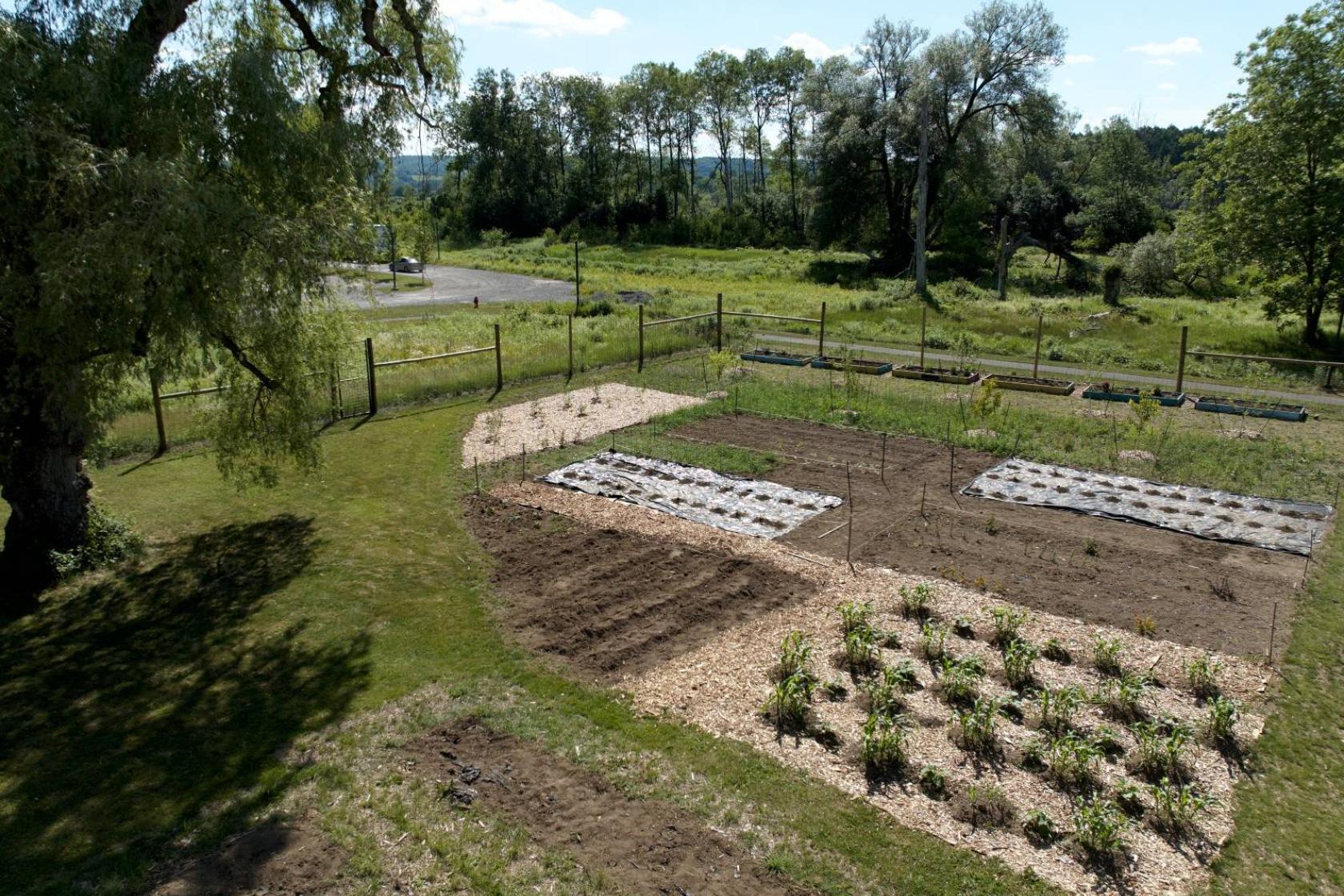Colgate’s Community Garden recently received a total of $110,000 to help fund the addition of a greenhouse and an electric golf cart to transport compost materials. The greenhouse will be open before the 2024 growing season and will support the community garden as both an educational space and source of food for campus and local families.
A $25,000 sustainability grant from the Fred L. Emerson Foundation; a $5,000 grant from NYSAR3, a state advisory organization that promotes recycling; and an $80,000 pledge from Mark and Julia Schonfeld P’25, P’27 will support the garden’s composting efforts and allow the garden to extend its growing season by several months, enabling more time for faculty and student research and increasing the amount of produce to be donated to the Hamilton Food Cupboard. The 18-by-20 foot, metal frame greenhouse will be located on a concrete pad on the site and will feature potting benches, growing tables, and the capacity for a future hydroponics system.
Established in June 2010 with seed money from the Class of 2010, the garden has served as a social, research, educational, and food production space, supervised by Garden Manager Beth Roy and tended by student interns, Colgate faculty and staff members, and volunteers from campus and the community. The garden features an apiary, production crops, and 12 raised garden beds for use by community members.
Julia Schonfeld, mother to Natalie ’25 and Audrey, an incoming first-year student, is a board member for Groundwork Hudson Valley, an organization focused on promoting sustainable environmental change in urban communities. Schonfeld was impressed by the Community Garden and Roy’s efforts to promote both student and community involvement. The Schonfelds were introduced to John Pumilio, director of sustainability, and learned more about the University’s sustainability goals, a pillar of the Third-Century Plan.
“We knew we wanted to make a meaningful contribution to Colgate’s sustainability mission,” says Julia. “The more we heard more about the Community Garden, the better we understood its growing role in nurturing and educating the students as well as members of the surrounding community. With all its potential, the garden struck us as a perfect opportunity to support an important and valuable resource.”
In addition to serving the Hamilton community through its produce, the garden also provides a powerful teaching tool. Students in Professor Chris Henke’s ENST 390 course have partnered with the Community Garden to develop new connections with regional Indigenous communities by planting a Three Sisters Garden last summer and hosting events where students and community members can learn more about Indigenous methods of food production and traditional intersections of culture, spirituality, and agriculture. The garden will continue to host these events in the coming years and serve as a site for growing and saving Indigenous seeds.
The greenhouse project aligns with Colgate’s Third-Century Plan, which prioritizes a sustainable and carbon-neutral campus by supporting the University’s commitment to more sustainable food sourcing. Since 2010, the Colgate Community Garden has served as an educational space that provides student interns and campus community members first-hand opportunities to learn about gardening and small-scale agriculture. Its mission is to raise awareness of local food production, sustainable agriculture, and the food cycle on campus and in the community; increase local food options available to students through Colgate Dining Services; and to serve as a place of interaction and positive engagement that further strengthens the bond within the Colgate community and with its Hamilton neighbors.
All Colgate and Hamilton community members are welcome to visit the garden. Community members or groups interested in volunteering at the garden or reserving a plot for next season may contact Beth Roy at eroy@colgate.edu.
For the latest updates on the garden project, along with other campus sustainability news, please sign up for the Office of Sustainability newsletter.
